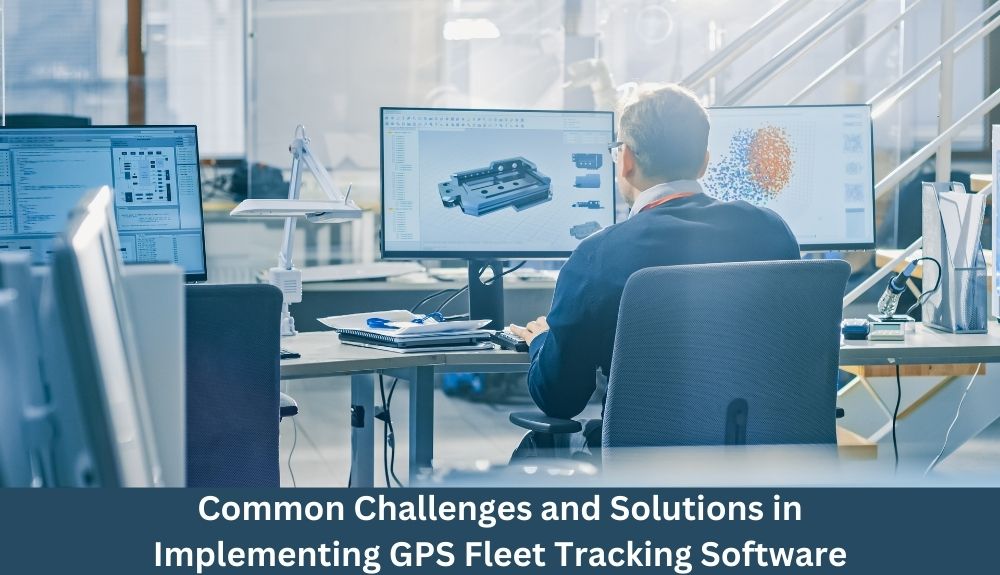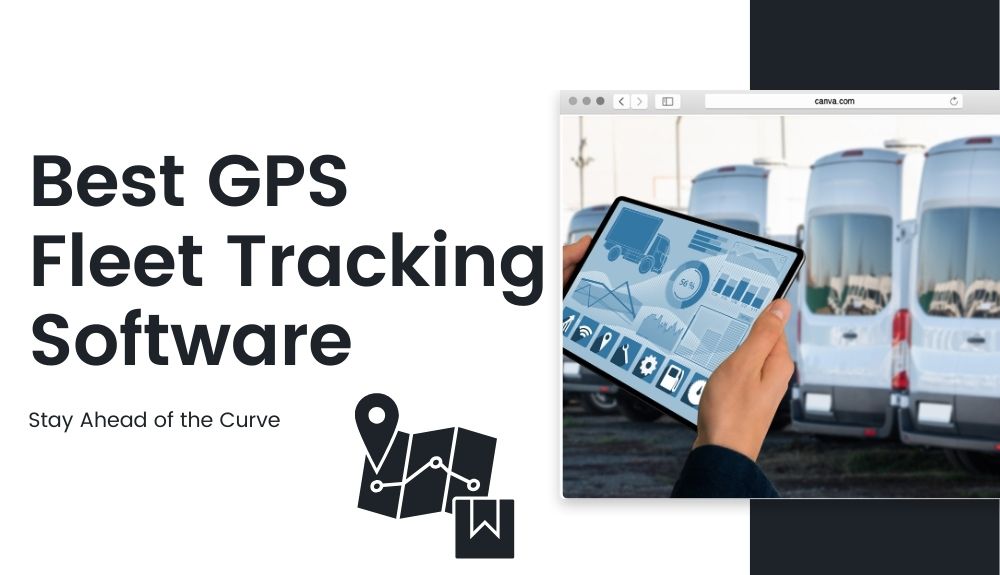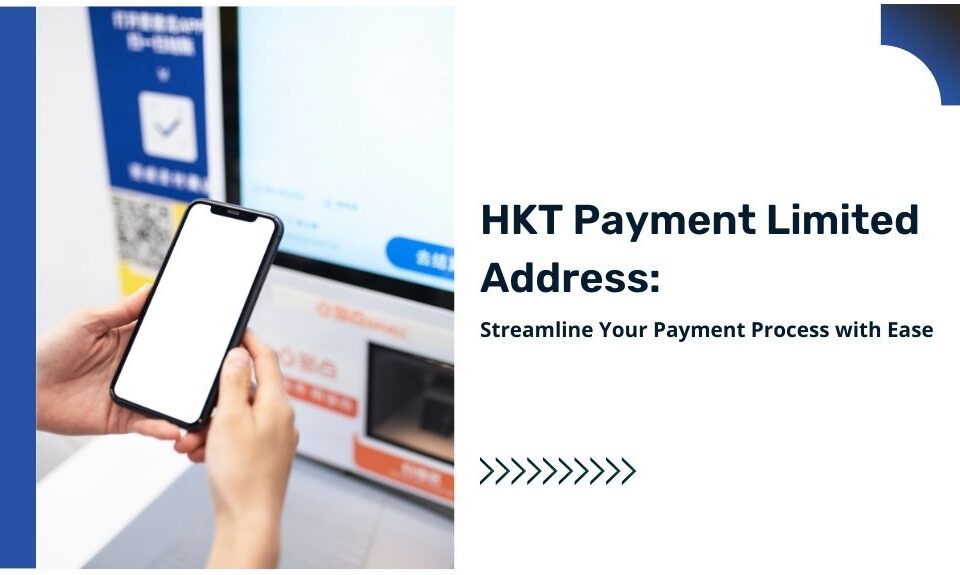Stay Ahead of the Curve: Explore the Best GPS Fleet Tracking Software for 2024

Unlocking Success: The Ultimate Guide to Recession Proofing Your Business
December 5, 2023
The Ultimate Guide to Choosing the Best Merchant Account for Your E commerce Business
December 14, 2023Are you tired of constantly juggling your fleet operations, trying to stay ahead of the curve? Looking for a reliable GPS fleet tracking software to streamline your business in 2024? Well, you’ve come to the right place!
Imagine having real-time visibility of your vehicles, optimizing routes for efficiency, and increasing overall productivity. With the best GPS fleet tracking software, you can achieve all that and more. Say goodbye to guesswork and hello to data-driven decisions.
1. Understanding GPS Fleet Tracking Software
GPS fleet tracking software has revolutionized the way businesses manage their vehicle fleets. It provides real-time location updates and a multitude of data points that can be used to optimize operations, improve driver safety, and reduce costs. In this section, we will explore the key features and benefits of GPS fleet tracking software, giving you a comprehensive understanding of its capabilities.
1.1. What is GPS Fleet Tracking Software?
GPS fleet tracking software utilizes GPS technology to track the location of vehicles in a fleet. It consists of a combination of hardware devices installed in vehicles and software that collects and analyzes the data. By providing detailed insights into vehicle movements, it helps businesses make informed decisions regarding route optimization, driver performance, and overall fleet management.
1.2. Key Features of GPS Fleet Tracking Software
1.2.1. Real-Time Location Updates
One of the primary features of GPS fleet tracking software is its ability to provide real-time location updates. This allows fleet managers to monitor the precise location of each vehicle, enabling better coordination and response to unexpected situations.
1.2.2. Route Optimization
Efficient route planning is crucial for fleet management. GPS fleet tracking software can analyze traffic patterns, road conditions, and other variables to suggest the most optimized routes for drivers. By reducing unnecessary mileage and avoiding traffic congestion, businesses can save on fuel costs and improve overall efficiency.
1.2.3. Driver Performance Monitoring
GPS fleet tracking software allows businesses to track and monitor driver behavior. It provides insights into speeding, harsh braking, and other unsafe driving habits. By identifying areas for improvement, businesses can implement driver training programs and enhance road safety.
1.2.4. Vehicle Maintenance Alerts
Regular vehicle maintenance is essential to ensure optimal performance and avoid costly repairs. GPS fleet tracking software can monitor vehicle diagnostics and send maintenance alerts based on mileage or other parameters. This proactive approach helps businesses stay on top of maintenance schedules and reduce downtime.
1.2.5. Integration with External Systems
To streamline operations, GPS fleet tracking software often integrates with other business systems. For example, integration with fuel management systems can provide real-time fuel consumption data, allowing businesses to identify fuel-saving opportunities and track expenses accurately.
1.3. Benefits of GPS Fleet Tracking Software
1.3.1. Cost Savings
By optimizing routes, monitoring driver behavior, and managing vehicle maintenance, GPS fleet tracking software helps businesses achieve significant cost savings.
2. Why GPS Fleet Tracking Software is Crucial for Businesses
In today’s fast-paced business landscape, GPS fleet tracking software has become a crucial tool for businesses of all sizes. Whether you run a small business with a few vehicles or manage a large enterprise with a fleet spanning multiple locations, implementing GPS fleet tracking software can significantly impact your operations and boost your bottom line. Let’s explore the key reasons why GPS fleet tracking software is indispensable for businesses:
1. Real-Time Location Updates:
Having real-time visibility of your fleet’s location is paramount when it comes to efficient fleet management. GPS fleet tracking software provides you with accurate and up-to-the-minute location updates of your vehicles. This information allows you to monitor routes, identify potential bottlenecks, and make informed decisions to optimize your fleet’s performance.
2. Route Optimization:
Optimizing routes is a crucial aspect of fleet management as it directly impacts fuel efficiency, delivery time, and overall productivity. GPS fleet tracking software offers advanced route planning functionalities, leveraging technologies like Google Maps. With this software, you can determine the most efficient routes, considering factors such as traffic updates, road conditions, and even weather forecasts. By reducing unnecessary mileage, you can lower fuel consumption, minimize wear and tear on vehicles, and ensure timely deliveries.
3. Driver Performance and Safety:
Ensuring driver safety and performance is a top priority for any business that relies on a fleet. GPS fleet tracking software allows you to monitor driver behavior, such as speeding, harsh braking, or erratic driving. By identifying areas of improvement and providing feedback to drivers, you can enhance road safety and reduce the risk of accidents. Additionally, GPS fleet tracking software can generate detailed safety reports, giving you insights into driver performance and helping you implement corrective measures.
4. Vehicle Maintenance and Cost Saving:
Regular vehicle maintenance is essential to keep your fleet running smoothly and minimize unplanned downtime. GPS fleet tracking software can assist in optimizing maintenance schedules by monitoring engine diagnostics, mileage, and other critical vehicle data. With predictive maintenance alerts, you can schedule preventive maintenance, reducing the likelihood of costly repairs and prolonging the lifespan of your fleet. By proactively managing vehicle maintenance, businesses can save on repair expenses, increase efficiency, and minimize disruptions to their daily operations.
5. Enhanced Fleet Security:
Protecting your valuable fleet assets is vital to the long-term success of your business. GPS fleet tracking software provides added security by enabling real-time tracking and monitoring of your vehicles.
3. Benefits of GPS Fleet Tracking Software
Managing a fleet of vehicles can be challenging, but with the right GPS fleet tracking software, you can streamline operations and enjoy a range of benefits. Here are some key advantages that make investing in GPS fleet tracking software a smart choice for businesses of all sizes.
1. Real-Time Location Updates:
One of the most significant benefits of GPS fleet tracking software is the ability to receive real-time location updates for your vehicles. With this feature, you can monitor the exact whereabouts of your fleet at any given time. Whether you need to check the progress of a delivery or ensure that your team is on track, real-time location updates provide you with the peace of mind knowing that you can stay informed and make informed decisions.
2. Improved Route Optimization:
Efficient route planning is crucial for fleet management, and GPS fleet tracking software can help you optimize your routes for time and fuel efficiency. By analyzing traffic patterns and historical data, the software can suggest the most optimal routes for your drivers, avoiding traffic congestion and reducing fuel consumption. This feature not only saves you money on fuel costs but also improves overall fleet productivity and reduces delivery times.
3. Enhanced Driver Safety:
Safety should always be a top priority when managing a fleet. GPS fleet tracking software enables you to monitor driver behavior and promote safe driving habits. Through comprehensive data gathering, you can analyze driver performance, identify areas for improvement, and provide targeted training to enhance driver safety. This not only reduces the risk of accidents but also helps you maintain a positive reputation for road safety.
4. Comprehensive Fleet Management:
From maintenance scheduling to fuel consumption tracking, GPS fleet tracking software provides a comprehensive solution for managing your fleet. The software allows you to keep track of vehicle maintenance needs, monitor fuel costs and consumption, and even receive alerts for routine maintenance or repairs. By having all this data at your fingertips, you can optimize fleet performance, reduce downtime, and lower maintenance costs.
5. Simplified Daily Operations:
With a user-friendly and intuitive platform, GPS fleet tracking software simplifies daily operations for fleet managers. The software provides a centralized dashboard where you can access all the necessary information in one place. You can efficiently manage schedules, track driver availability, assign tasks, and communicate with your team members through the software. This level of organization and coordination streamlines your operations, leading to improved productivity and better management of resources.
4. Key Features to Look for in GPS Fleet Tracking Software
When selecting the right GPS fleet tracking software for your business, it’s important to consider the key features that will contribute to efficient fleet management and driver safety. Here are the top features you should look for:
1. Real-Time Location Update:
The software should provide accurate and up-to-date location information for each vehicle in your fleet.
Real-time updates will allow you to monitor the movements of your fleet and make informed decisions regarding route optimization and resource allocation.
2. Route Optimization:
An effective fleet tracking software should have advanced route planning capabilities.
This feature will help you optimize routes, avoid traffic jams, reduce delivery time, and minimize fuel consumption, resulting in cost savings for your business.
GPS integration with Google Maps or similar platforms can enhance this functionality.
3. Driver Safety and Performance:
Look for software that provides detailed insights into driver behavior and performance.
This feature allows you to monitor driver habits such as speeding, hard braking, and rapid acceleration.
Safety reports and alerts will enable you to address any concerning driver behavior promptly, enhancing overall road safety.
4. Vehicle Maintenance and Diagnostics:
A comprehensive GPS fleet tracking solution should include maintenance and diagnostic features.
It should provide alerts and notifications for scheduled maintenance, helping you maintain the health of your fleet and reduce unexpected breakdowns.
Integration with electronic logging devices (ELDs) can streamline data collection and compliance for driver hours-of-service regulations.
5. Mobile App and User-Friendly Interface:
Opt for software that offers a mobile app to access fleet information on the go.
A user-friendly interface with intuitive navigation will make it easier for your fleet manager and team members to operate the software efficiently.
Look for a simple platform that doesn’t require extensive training or technical expertise.
💡 key Takeaway: When choosing GPS fleet tracking software, prioritize features like real-time location updates, route optimization, driver safety monitoring, vehicle maintenance capabilities, and a user-friendly interface. These key features will contribute to efficient fleet management and help maximize your business’s potential for success.
5. Top GPS Fleet Tracking Software Providers for 2024

In today’s fast-paced business environment, it is crucial for fleet managers to stay ahead of the curve by leveraging advanced technologies that optimize efficiency, ensure driver safety, and streamline daily operations. With the advancement of GPS fleet tracking software, businesses of all sizes can now effectively monitor and manage their fleet vehicles, resulting in improved fuel efficiency, reduced costs, and enhanced overall performance.
Here, we explore the top GPS fleet tracking software providers for 2024, who have proven themselves as industry leaders with their comprehensive solutions and cutting-edge features. Whether you run a small business with a handful of vehicles or manage a large enterprise with an extensive fleet, these software providers offer the tools and functionalities to meet your unique business needs. Let’s delve into the details:
1. Verizon Connect:
With its robust fleet management software, Verizon Connect offers a comprehensive suite of features that cover everything from real-time location updates and route optimization to driver behavior monitoring and vehicle maintenance scheduling. Its user-friendly interface and customizable dashboard provide fleet managers with a simple platform to track and manage their fleet vehicles effectively.
Key features of Verizon Connect:
Real-time location updates for accurate fleet tracking
Route optimization for time and fuel savings
Driver behavior monitoring to ensure road safety and improve efficiency
Vehicle maintenance scheduling for proactive upkeep and minimizing downtime
2. GPS Trackit:
GPS Trackit is known for its user-friendly interface and extensive reporting capabilities, providing fleet managers with valuable insights to make data-driven decisions. Its comprehensive fleet management software offers features such as route planning, electronic logging devices (ELDs), and safety reports to ensure compliance, enhance efficiency, and promote driver safety.
Key features of GPS Trackit:
Route planning for optimized navigation and reduced fuel consumption
Electronic logging devices for streamlined compliance and accurate record-keeping
Safety reports to identify driver behavior patterns and address potential risks
3. Google Maps:
While primarily recognized as a popular online mapping service, Google Maps also offers fleet management capabilities through its integration with various GPS fleet tracking software providers. Its reliable mapping data, in combination with features like real-time traffic updates and optimized routes, make it a valuable tool for any fleet manager looking to improve productivity and reduce delivery times.
Key features of Google Maps:
Accurate and up-to-date mapping data for reliable navigation
Real-time traffic updates to help drivers avoid congested routes and save time
6. Comparison of GPS Fleet Tracking Software Providers
When it comes to GPS fleet tracking software providers, there is no shortage of options to choose from. To help you make an informed decision, we have compiled a comprehensive comparison of some of the best providers in the industry. Whether you’re a small business owner or a fleet manager for a large enterprise, this information will guide you in selecting the right solution for your unique business needs.
1. Verizon Connect
Known for its advanced features and reliable performance
Offers real-time location updates and route optimization
Provides driver safety reports and behavior monitoring
Offers a user-friendly interface and ease of use
Ideal for businesses of all sizes with its scalable solutions
2. GPS Trackit
Specializes in fleet management and optimization
Offers a simple and intuitive platform for easy navigation
Provides real-time tracking and vehicle maintenance alerts
Helps reduce fuel consumption and improve fuel efficiency
Suitable for businesses looking to streamline their operations
3. Google Maps Platform
Utilizes Google Maps for accurate and comprehensive mapping
Offers real-time traffic updates for effective route planning
Provides integration with other Google services and applications
Ideal for businesses that rely heavily on location-based services
Offers a free trial for businesses to test out the platform
4. Fleetio
Focuses on fleet maintenance and management
Provides features for monitoring vehicle performance and maintenance
Offers electronic logging device (ELD) integration for compliance
Helps reduce costs through optimized route planning
Suitable for businesses prioritizing vehicle maintenance and compliance
5. GPS Insight
Offers comprehensive fleet management solutions
Provides real-time tracking and driver behavior monitoring
Helps increase driver safety and reduce labor costs
Offers a mobile app for convenient access to fleet information
Ideal for businesses looking for peace of mind and streamlined operations
6. Step GPS
Specializes in fleet tracking and live monitoring
Offers a wide range of features including fuel cost analysis
Provides a user-friendly interface for easy navigation
Helps optimize routes for efficient delivery times
Suitable for businesses seeking cost-saving solutions
💡 key Takeaway: When choosing a GPS fleet tracking software provider, consider factors such as real-time tracking, route optimization, driver safety, fuel efficiency, and ease of use. Selecting the right provider for your business can lead to improved fleet operations, cost savings, and enhanced overall efficiency.
7. Tips for Choosing the Right GPS Fleet Tracking Software
When it comes to managing your fleet efficiently and effectively, choosing the right GPS fleet tracking software is of utmost importance. With a wide range of options available in the market, it can be overwhelming to make the right choice. To help you navigate through the selection process, we’ve compiled a list of tips that will guide you towards choosing the best GPS fleet tracking software for your specific business needs.
1. Assess Your Business Needs:
Before diving into the sea of options, take a step back and assess your business requirements. Consider factors such as the number of vehicles in your fleet, the nature of your operations, and the specific features you need from a GPS fleet tracking software. By understanding your needs, you can narrow down your options and focus on choosing a solution that caters to your unique business requirements.
2. Evaluate User-Friendly Interfaces:
One of the key considerations while choosing a GPS fleet tracking software is the ease of use. Look for a solution that offers a simple and intuitive interface, ensuring that both your fleet managers and drivers can navigate the software effortlessly. A user-friendly interface reduces the learning curve, increases adoption rates, and minimizes the need for extensive training.
3. Consider Real-Time Data and Reporting:
The ability to access real-time data and generate comprehensive reports is crucial for effective fleet management. Look for a GPS fleet tracking software that provides real-time location updates, monitors driver behavior, and offers detailed reports on various metrics such as fuel consumption, driver performance, and maintenance schedules. Such data-driven insights empower you to make informed decisions and optimize your fleet’s efficiency.
4. Prioritize Safety Features:
Ensuring driver safety should be a top priority for any fleet manager. Look for a GPS fleet tracking software that offers safety features such as driver behavior monitoring, safety reports, and alerts for speeding or harsh driving. These features not only promote safer driving practices but also help you identify and address any potential risks or violations.
5. Consider Integration Capabilities:
Seamless integration with other systems and software is essential for enhancing productivity and streamlining operations. Look for a GPS fleet tracking software that offers integration capabilities with other tools you already use, such as fuel management systems, dispatch software, or maintenance platforms. Integration eliminates manual data entry, enhances data accuracy, and ensures smooth workflow across various departments.
8. Future Trends in GPS Fleet Tracking Software
The world of GPS fleet tracking software is constantly evolving, with new innovations and trends emerging to meet the needs of businesses and improve fleet management. As we look ahead to 2024, here are some key future trends to keep an eye on:
1. Integration of Artificial Intelligence (AI):
AI technology is making its way into various industries, and fleet management is no exception. AI-powered algorithms can analyze vast amounts of data collected from GPS tracking devices and provide actionable insights. By leveraging AI, fleet managers can optimize routes, predict maintenance needs, and even enhance driver safety by identifying risky driving behaviors.
2. Advanced Driver Assistance Systems (ADAS):
Safety is a top priority for fleet managers, and ADAS features are becoming increasingly prevalent in GPS fleet tracking software. These systems utilize sensors and cameras to monitor driving behavior and provide real-time feedback to drivers. From lane departure warnings to collision avoidance alerts, ADAS is helping to promote road safety and reduce the number of accidents.
3. Telematics Integration:
GPS fleet tracking software is becoming more comprehensive by integrating with telematics systems. Telematics combines GPS technology with onboard diagnostics to gather and analyze data related to vehicle performance, such as fuel consumption, engine health, and maintenance needs. This integration allows for a holistic view of fleet operations, enabling managers to make data-driven decisions for cost savings and improved efficiency.
4. Mobile Applications:
With the increasing use of smartphones, mobile applications are playing a crucial role in GPS fleet tracking software. These applications allow fleet managers to access real-time data about their vehicles and drivers from anywhere, at any time. They provide features like live location tracking, driver performance monitoring, and customized reporting, ensuring that managers stay connected and informed even while on the go.
5. Enhanced Data Analytics:
Data is king in fleet management, and advanced data analytics capabilities are being incorporated into GPS fleet tracking software. Fleet managers can now access in-depth reports and visualizations that provide insights into driver behavior, fuel usage, maintenance patterns, and much more. By leveraging these analytics, managers can identify areas for improvement and implement strategies to optimize their fleet’s performance.
💡 key Takeaway: The future of GPS fleet tracking software is driven by AI integration, ADAS features, telematics integration, mobile applications, and enhanced data analytics. These trends aim to improve safety, efficiency, and cost-effectiveness for fleet management operations.
9. How to Optimize the Use of GPS Fleet Tracking Software for Maximum Efficiency
In today’s fast-paced business world, efficiency is the name of the game when it comes to fleet management. Utilizing GPS fleet tracking software can be a game-changer for businesses looking to stay ahead of the curve and streamline their operations. Here are some key strategies to optimize the use of GPS fleet tracking software for maximum efficiency.
1. Set Clear Objectives: Before diving into the world of GPS fleet tracking, it’s important to define your objectives clearly. Identify the specific areas of your fleet operations that need improvement, such as reducing fuel consumption, enhancing driver safety, or optimizing route planning. Having a clear focus will help you leverage the software to its full potential.
2. Choose the Right Software: With a myriad of GPS fleet tracking software options available, selecting the right one for your specific needs is crucial. Consider factors such as ease of use, real-time location updates, driver app accessibility, and integration with other systems. Trusted brands like Verizon Connect, GPS Trackit, and other industry leaders offer feature-rich solutions that cater to businesses of all sizes.
3. Utilize Real-Time Data: One of the greatest advantages of GPS fleet tracking software is the ability to access real-time data. Monitor your fleet’s performance, track vehicle location, analyze driver behavior, and receive safety reports instantly. This data-driven approach allows for quick decision-making, identifying areas for improvement, and ensuring compliance with road safety regulations.
4. Optimize Route Planning: Efficient route planning is a critical factor in fleet optimization. GPS fleet tracking software offers route optimization features that consider factors like traffic congestion, fuel efficiency, and delivery time. By analyzing historical data and integrating with Google Maps, the software provides optimized routes, reducing driver time on the road and improving overall delivery efficiency.
5. Promote Driver Accountability: GPS fleet tracking software serves as a valuable tool for promoting driver accountability. Access driver performance metrics, including speeding violations, excessive idling, and harsh braking. Use these insights to educate and train drivers on best practices, resulting in improved safety, reduced fuel costs, and minimized wear and tear on vehicles.
6. Streamline Maintenance and Repairs: Efficient fleet operations require proactive vehicle maintenance. GPS fleet tracking software can help streamline this process by providing alerts for scheduled maintenance and equipment diagnostics. Track mileage, engine hours, and diagnostic codes to ensure timely servicing, minimizing breakdowns, and maximizing uptime.
10. Common Challenges and Solutions in Implementing GPS Fleet Tracking Software

Implementing GPS fleet tracking software can be a game-changer for businesses looking to optimize their fleet management and streamline operations. However, like any new technology, it comes with its own set of challenges. In this section, we will explore some common challenges that businesses face when implementing GPS fleet tracking software, along with effective solutions to overcome them.
1. Resistance to Change
Organizational resistance to change can be a significant hurdle when introducing new software. Some employees may be accustomed to traditional methods of fleet management and resistant to adopting new technology. To address this challenge, businesses can:
Provide comprehensive training: Offer thorough training sessions to familiarize employees with the software’s features and functionality.
Emphasize the benefits: Clearly communicate the benefits of GPS fleet tracking, such as improved efficiency, reduced costs, and enhanced driver safety.
2. Integration with Existing Systems
Integrating GPS fleet tracking software with existing systems, such as fuel monitoring or vehicle maintenance, can present compatibility challenges. Businesses can overcome this hurdle by:
Assessing compatibility beforehand: Prior to implementing the software, evaluate its compatibility with existing systems and identify any potential integration issues.
Seek professional assistance: Collaborate with the software provider to ensure smooth integration and resolve any compatibility issues.
3. Data Management
Collecting and managing large volumes of data generated by GPS fleet tracking software can be overwhelming for businesses, especially if they lack the necessary resources or expertise. To efficiently handle this challenge, consider:
Data consolidation: Use reporting and analytics features provided by the software to consolidate and analyze data in a meaningful way.
Outsourcing data management: Consider outsourcing data management to a third-party service provider to ensure proper data analysis and interpretation.
4. Privacy and Security Concerns
With the implementation of GPS fleet tracking software, businesses need to address privacy concerns both for their drivers and customers. Here are some solutions:
Clear privacy policies: Develop and communicate clear privacy policies that explicitly state the purpose and use of the collected data, ensuring compliance with relevant regulations.
Secure data transmission: Invest in secure data transmission methods, such as encrypted communication channels, to mitigate potential security risks.
5. Integration into Workflows
Integrating GPS fleet tracking software seamlessly into existing workflows can be a challenge. To overcome this, businesses should:
Involve key stakeholders: Collaborate with fleet managers and drivers to identify pain points and tailor the software’s implementation to fit existing workflows.
Conclusion
In conclusion, staying ahead of the competition is crucial in today’s fast-paced business world. By investing in the best GPS fleet tracking software for 2024, you can gain a competitive edge and streamline your fleet management operations. With features like real-time vehicle tracking, route optimization, and driver behavior monitoring, this software offers a comprehensive solution to enhance efficiency, improve customer service, and reduce costs. But finding the right GPS fleet tracking software can be a daunting task amidst the multitude of options available. That’s why we have done the research for you and compiled this list of the best software for 2024. From industry leaders to up-and-coming providers, we’ve reviewed and compared them all to help you make an informed decision.




